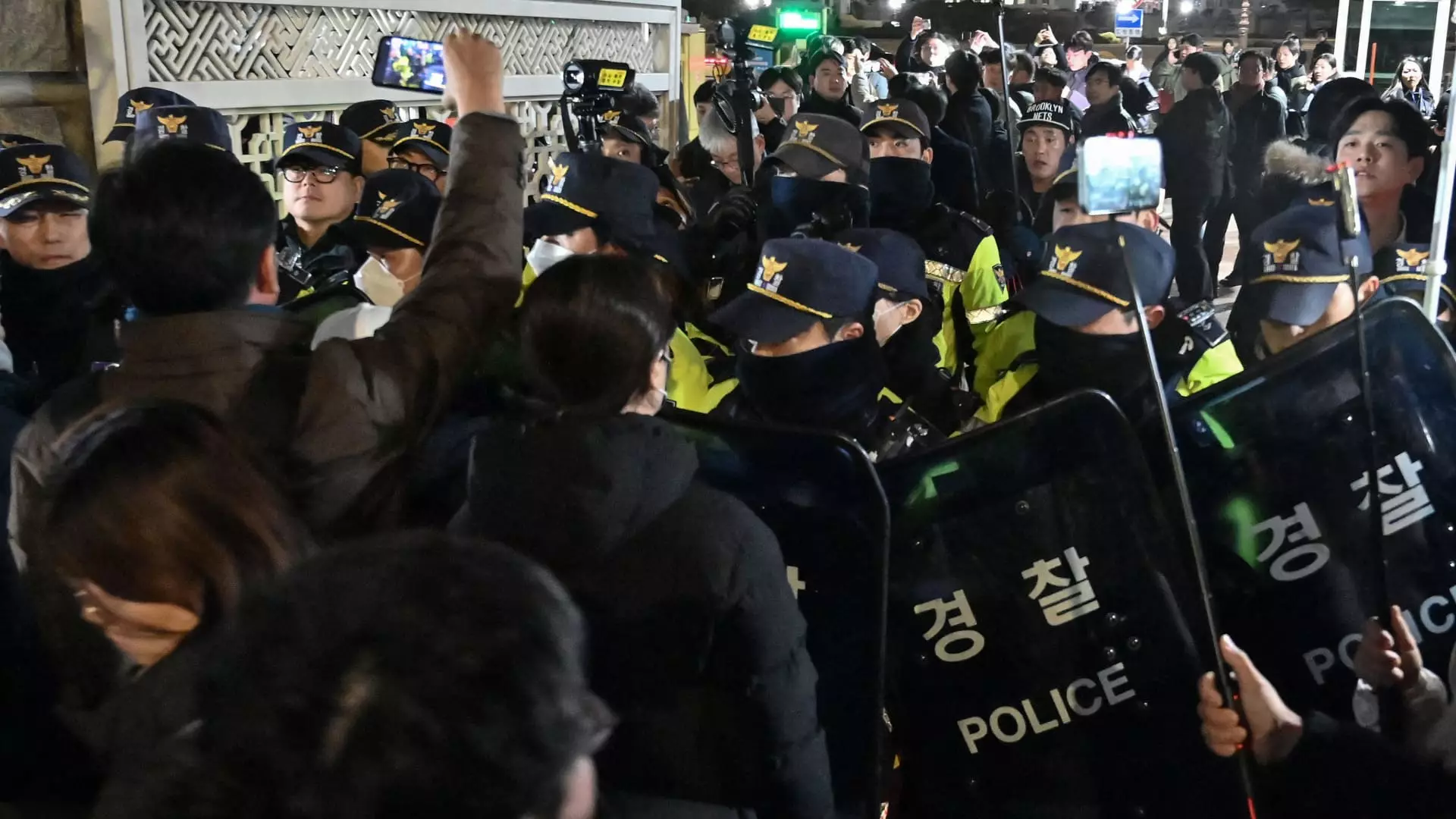On Tuesday, the South Korean stock market faced a sharp decline, driven by President Yoon Suk Yeol’s unexpected declaration of martial law. This drastic move, sparking fears of potential instability, has sent shockwaves not only through the domestic economy but also across international markets, as investors responded with caution. The iShares MSCI South Korea ETF, a significant barometer of the country’s economic health, plummeted to a 52-week low, reflecting a staggering 7% drop at one point before recovering slightly to a 2.4% decrease following the swift action taken by lawmakers.
The reaction from major South Korean corporations was equally stark. For instance, Korea Electric Power’s American Depositary Receipts (ADRs) suffered a 5% decline, while Coupang, an e-commerce powerhouse, saw its shares diminish by 6%. The implications of such drastic fluctuations in stock prices indicate a broader loss of confidence among investors regarding South Korea’s economic stability.
Political Repercussions of Martial Law
President Yoon’s martial law declaration, which is notably the first since 1980, raises significant concerns about the future of governance in South Korea. His administration has accused opposition parties of aligning with North Korea, a statement that not only heightens political tensions but also reveals the deepening polarization within South Korean politics. Yoon’s vague outline of how this martial law would impact governance leaves much to be desired in terms of clarity and confidence among the populace.
Remarkably, the National Assembly, demonstrating a rare moment of unity in the face of executive overreach, acted swiftly to undo Yoon’s declaration. Within just hours of the martial law being imposed, 190 of the 300 lawmakers gathered, showcasing a judiciary oversight aimed at safeguarding democracy. This instance illustrates the ongoing tug-of-war between the executive branch and legislative body, as lawmakers seek to preserve the tenets of democratic governance amid rising authoritarian tendencies.
Market Reactions and Future Considerations
In response to the turmoil, the Korea Exchange announced an emergency convening to explore measures to stabilize the situation and consider the prospects of reopening the market. The urgency of such a meeting signals that stakeholders are acutely aware of the potential ramifications of prolonged uncertainty. Furthermore, the U.S. dollar surged by 1.9% against the South Korean won, underscoring the heightened demand for safe-haven assets amidst escalating fears.
The overall environment reflects a precarious balance between political urgency and economic stability, prompting analysts and investors to scrutinize future developments closely. The unfolding situation serves as a reminder that financial markets are inextricably tied to political landscapes and that drastic government decisions can yield immediate and substantial consequences on economic health.
As South Korea charts its course amidst these critical developments, both domestic and global observers will be keenly watching for signs of resolution or further escalation, determining not only the fate of Yoon’s administration but also the broader stability of the region.

